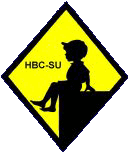
Education and religion in England are a little complicated and I do not fully understand the arrangements. Religious groups are allowed to set up or support schools. Most of England's major public schools and associatted preparatory schools have connections to the Church of England. There are schools asiciated with other Protestant denominations and Catholics. I am less sure about other religions. The state system is more complicated. England primary and secondary schools are secular, but there are no prohibitions on prayers and I believe that there is required Religious Educatioin. At one time this was overseen by the Church of England, but I am not sure about the current content. In addition to the standard state schools, there were some faith schools that received state support. This included both Anglican and Catholic schools. The Labour Government in recent years has helped estabnlish Muslim, Hindu and Sikh schools in an effort to give them parity with Christian schools. I know there are primary faith schools. I'm less sure about secondary schools. As a result of a series of terror attacks in Britain, these new faith schools have been the subject of controversy.
Education and religion in England are a little complicated and I do not fully understand the arrangements. Religious groups are allowed to set up or support schools.
In the UK there has been a strong tradition of Church funded and supported education. This, until the back end of the last century was mainly either the Protestants (Church of England, Methodist, Baptist, Quaker etc) or Roman Catholics as they were the ones with the financial and political position to form schools. Historically the churches played a large part in providing education throughout the UK back into the middle ages. More recently there has been a big growth in Jewish and Islamic based schools which some have seen as being too far beyond the accepted practice throughout the Country.
Most of England's major public chools and associated preparatory schools have connections to the Church of England. There are schools associated with other Protestant denominations and Catholics. I am less sure about other religions.
The state system is more complicated. England primary and secondary schools are secular, but there are no prohibitions on prayers and I believe that there is required Religious Educatioin. At one time this was overseen by the Church of England, but I am not sure about the current content.
In addition to the standard state schools, there were some faith schools that received state support. This included both Anglican and Catholic schools. A goof example of an Aglican school is St. Clenent's in Liverpool. Although Protestant/Anglican is the stated religion of most schools in the UK (actually most now describe themselves as Non-denominational based on a Christian tradition - very 'PC'). There are a
vast number of Catholic schools within the state and independent sectors.
The Catholic Church probably support more faith schools than any other
within the State system. Catholic schools tend to have or are at least
percieved to have high standards, possibly because of their ethos but also
the fact that parents have to work at getting their child into them,
therefore, students at such schools tend to have more supportive parents
(the real key to success) than any religious or organisational differences.
In the UK it is not uncommon for parents to move house in order for their
children to attend particularly favoured state schools in an area.
Catholic schools in Britain and Ireland used to have a very poor reputation,
especially regarding violence towards students and very closed ideas on
teaching but this has mostly dsappeared since the late 60s. Modern schools
being very different places.
The Labour Government in recent years has helped estabnlish Muslim, Hindu and Sikh schools in an effort to give them parity with Christian schools. I know there are primary faith schools. I'm less sure about secondary schools. As a result of a series of terror attacks in Britain, these new faith schools have been the subject of controversy.
An English reader writes in 2007, "I was in York a few weeks ago at the railway museum (no I am not a trainspotter!) and there was a large group from a muslim school there. A few of their teachers were in full black veil whilst others just wore head scarves. (Many in the UK including some Muslims believe that many of the women wearing the full garb are doing so more for political than religious reasons.) The children wore grey baggy trousers and tops (with a school badge) made out of sweatshirt material with a slight V-neck but which reached down to just above knee level. Not a common sight as most such
schools are in London, Birmingham and a couple of the West Yorkshire & Lancashire towns where the Muslim communities are largest."
Religion within the educational system has been a hot topic for many years with people on all sides believing they are the only ones who are right. On a day to day basis most schools, even some which profess to be Christian based, are really very secular and religious observance is minimal
during assemblies and only a very broad syllabus is taught in RE with the
subject becoming optional as soon as choices have to be selected. Only in
Church Aided schools or a few Independents are you likely to encounter
regular religious services and RE being a mandatory subject. Parents in the
UK do have the right to have their children opt out of religious education
just as sex educati9on if they wish. Very few parents take that option.
An English reader provides us this summary of the British debate on religious schools. "On one hand there is a big push towards breaking down barriers between communities and then schools teaching specific dogmas are being promoted apparently in defiance of that. Add to this a very large influx of immigrants to some parts of the country - mainly with Islamic or Catholic beliefs - and a general shift towards being more and more secular away from organised religion or even belief from the indiginous population and trouble is brewing. Even religious people are concerned that wars and conflicts undertaken under hijacked religious beliefs are harming peoples willingness to follow religion and the demise in power of the various Churches. Power being a key word. There are primary and secondary schools within both the State and independent sector which are religiously based. These are mostly Christian, Jewish and Islamic. Few people object to the choice if people wish to pay for independent education for their children although the preference would be for religious education to at least include an understanding of other religions but re State education people are getting
more and more annoyed with government interfrence and would generally prefer there to be no religious component or connection. Unfortunately the political and finacial hold of the main religious groups will not allow even a sympatheticv Government to do that. The result has been for the
Government to insist upon a broad religious policy within such schools but this is in reality very superficial as it does not take account of the social, community and other influences associated with religiously backed schools. There has been massive debate over some of the new Academies
(privately funded state schools where the funders get a massive say in the curriculum of the school in return for a minimum £2 million investment). A couple of schools in the northeast have been supported by a businessman who does not acknowledge evolution and the staff were forced to teach creationism or
be sacked. Such extremes as this are obviously also adding weight to the unrest about religion in schools and society in general. Unlike the United States the United Kingdom is not a massively devout or pious place. [HBC note: We would not call America a "pious place". After all Islamcists call us "the Freat Satan". But there certainly is a much larger fundamentalist Christian sector than any where in Europe. About half of Americans regularly attend Church. The percentage is much lower in Briain and the rest of Europe.] The Church of England and Catholic churches, however, weild much power and influence disproportionate to their real support. Historically the churches were important and despite aiding their own coffers in the process made great leaps in promoting education for all and other social justices, however, their role in modern society is seen as far more anacronistic and potentially a source of problems. The other 'newer' religions to enter the UK are seen as being attacking the status
quo; certainly so far as the radicalised Muslims are concerned (though the vast majority of British Muslims share the view of each keeping their religious views to themselves). What most people in Britain, irrespective of their religious views, believe is that if you want to live in the UK you
need to accept we are now a secular state in all bar name and anyone can practice their religion as long as it does not interfere with others. If you want to practice some extreme form then you should re-locate to a country where that is the accepted norm. that applies whether you are
British or a Immigrant. Polls in the UK have shown that most in the Muslim community do NOT support or condone the use of violence. [HBC note: The polls we have seen confirm that most Muslims do not condone violence. They also show, however, that a substantial number oif Muslims, qualify their rejection of violence. We have seen polls in both American and Britain which suggest that a substantial portion (often in the 25 percent range) who believe that suicide bombing and other acts of violence are at time justified.] It is worth bearing in mind that the Muslim population in the UK is far more Asian (meaning Indian, Pakistani and Bangladeshi) in make-up than the Afro-Americans in the United States. [HBC note: It is true that there are black Muslims in America. In recent years, however, they have been gradually become a minority a a result of immigration from Muslim countries.] Also, it is only a few main cities and a couple of selected regions in the UK which do play home to large communities of non-indiginous 'white, mainly christian-ish' people. Views from inside and outside such communities can be quite different and often are ignorant of others perceptions."
Another reader writes, "There have been calls to make all schools in the UK secular but as the
religious groups have a lot of political say and financial input into education the Government won't be moving in that direction. Even Faith Schools are supposed to teach RE covering other religions but this is often paid lip service and reality and theory are often disimilar. Why and how some Bristish Muslims have become radicalised is a hot debate over here and most point the finger at racism including inverted racism - basically communities not willing to integrate or accept one another. Fortunately it
is a very small minority involved."
Related Chronolgy Pages in the Boys' Historical Web Site
[The 1880s]
[The 1930s]
[The 1940s]
[The 1950s]
[The 1960s]
[The 1970s]
[The 1980s]
Related Style Pages in the Boys' Historical Web Site
[Long pants suits]
[Short pants suits]
[Socks]
[Eton suits]
[Jacket and trousers]
[Blazer
[School sandals
Navigate the HBC Country School Pages
[Main English School Uniform Type Page]
[Australia]
[England]
[France]
[Germany]
[Italy]
[Japan]
[New Zealand]
[Scotland]
[United States]
Navigate the HBC School Section
[About Us]
[Activities]
[Chronology]
[Clothing styles]
[Countries]
[Debate]
[Economics]
[Garment]
[Gender]
[Hair]
[History]
[Home trends]
[Literary characters]
[School types]
[Significance]
[Transport and travel
[Uniform regulations]
[Year level]
[Other topics]
[Images]
[Links]
[Registration]
[Tools]
[Return to the Historic Boys' School Home]
